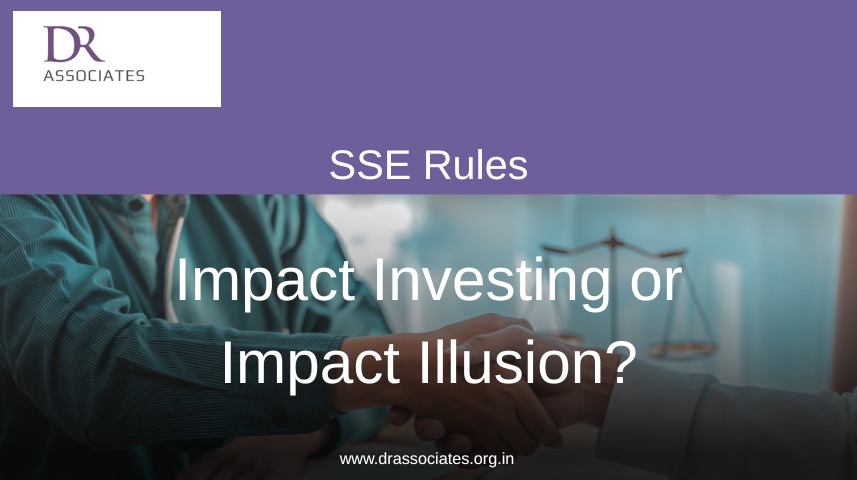
Impact Investing or Impact Illusion? Explaining the Legal Gaps in SEBI’s Social Stock Exchange Rules
SEBI, India’s financial market regulator, created new rules for a special Social Stock Exchange (SSE) where social organizations can raise funds from the public. They introduced a new financial tool called the Zero Coupon Zero Principal (ZCZP) instrument. This tool lets people and companies “donate” money to social organizations listed on the exchange, without expecting any profit or money back.
However, while this shows progress in social investing, there are important legal and practical problems with these new rules that need fixing. Let’s break down these issues in simple language.
- The Problem with ZCZP Instruments
- How ZCZP Works: People and companies give money to social organizations. This money is not an “investment” like buying a stock. Instead, it's a donation; donors don’t get any interest (profit) or their money back.
- Why is this a Problem? Most investors, especially large institutions like banks or mutual funds, put money in the market hoping to earn returns. Since ZCZPs offer no financial gain, very few traditional investors will be interested.
- Limited Appeal: Because ZCZPs are like donations, they can’t be bought and sold easily in the market. There’s little to no “liquidity” (you can’t sell them if you need your money back), which also discourages buyers.
- Missing Investor Protection
- In Regular Markets: SEBI requires protections for buyers—like the ability to sell their investment and safeguards against fraud.
- With ZCZP Instruments: Since donors don’t get returns, the usual protections and checks for investors aren’t there. Some legal rules say that every tradable security must offer some value or benefit to its holder, which ZCZPs don't provide.
- Legal Tension Because these instruments don’t provide financial benefits, they may not fully comply with India's existing rules for marketable securities.
- Risk of Fake Impact (Social-Washing and Greenwashing)
- What is Social-Washing? It's when an organization exaggerates or lies about the positive impact they have just to attract donations.
- Current Rules: SEBI says organizations should report their impact, but doesn’t always require third-party checking or strong punishments for false claims.
- Why is that an Issue? Without strict checks, some organizations can easily make fake claims without being caught or punished.
- Recommended Solutions
- Independent Audits: Every social organization should have their impact claims checked by independent, outside experts, not just review their own work.
- Penalties for Cheating: If an organization lies about its impact, it should be fined or punished, much like the rules for companies listed on the normal stock market.
- NFRA Oversight: The National Financial Reporting Authority (NFRA) should monitor the financial records and impact reports of organizations on the SSE to make sure the numbers are real and trustworthy.
- Learn from Europe: Europe has strong rules where organizations face large penalties for making false social or sustainability claims. India should consider adopting similar strict rules, with both careful verification and meaningful fines.
- Why These Changes Are Important
- Building Trust: Donors and the public will only trust the Social Stock Exchange if they believe that their money is going where it’s promised and that the laws really protect against fraud and scams.
- Market Credibility: With clear rules, regular checks, and penalties for misuse, the SSE framework will attract more genuine organizations, more donations and possibly even serious investors in the long run.
Result: This tool is great for charities but doesn't attract normal investors; hence, the market for these instruments remains small.
The document suggests several ways to protect donors and make the SSE framework stronger:
In summary:
SEBI’s Social Stock Exchange is a great idea for helping social organizations
raise money, but there are still big problems - like weak legal protections
and a lack of strict checking of impact claims. Stronger rules, audits,
and penalties are necessary to prevent fake claims and make the system
truly effective.
Rohit Pandya
We bridge mission-driven organisations and socially-minded investors through seamless Social Stock Exchange listings.



 by
by 